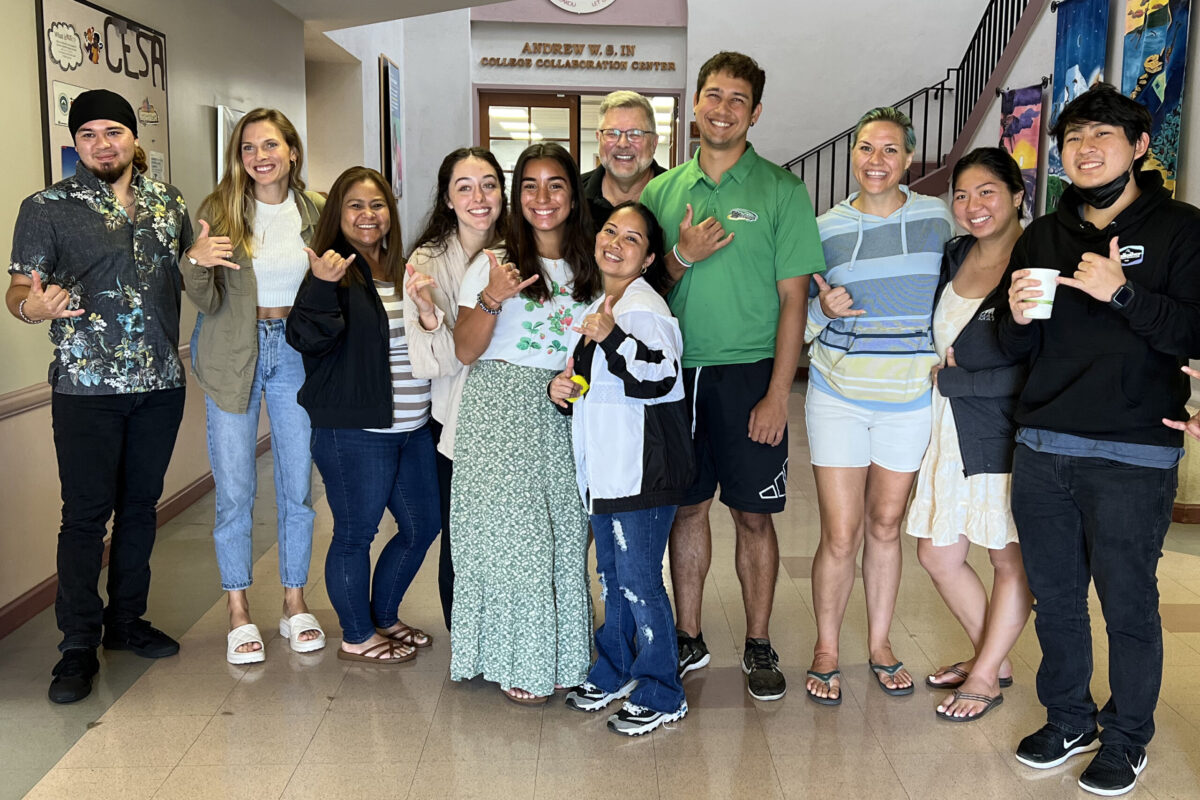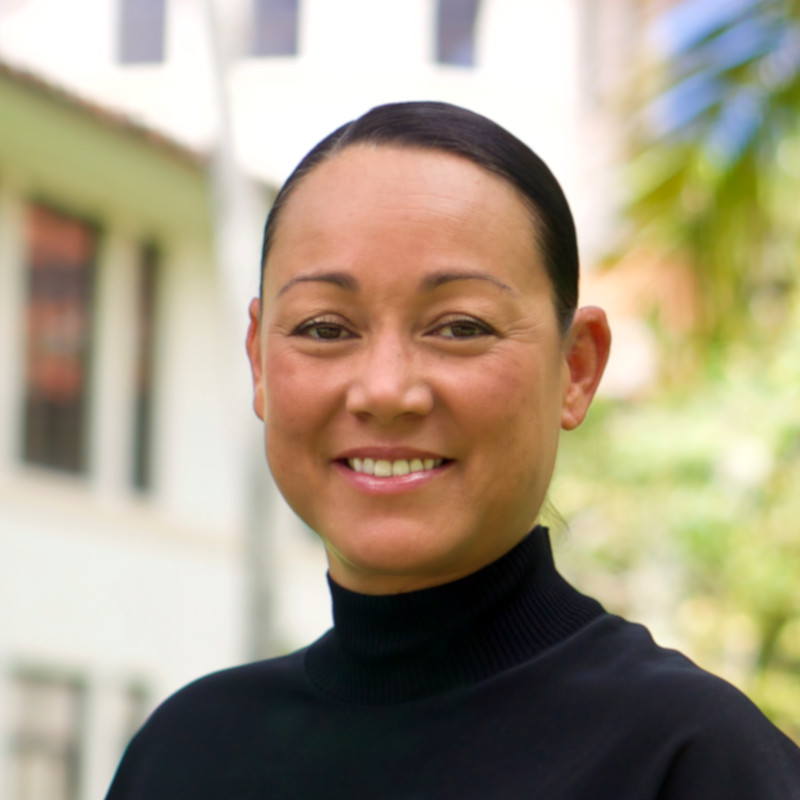
The College of Education BEd in Special Education (SPED) program, which began in Fall 2022, will see its first cohort of students graduate this May. A statewide undergraduate program, the BEd in SPED is designed for aspiring teachers across all Hawaiian Islands. Upon successful completion of the two-year program, teacher candidates graduate with a bachelor’s degree as well as a teaching license, so they can start teaching right away.
“This program serves a dire need in Hawai‘i due to the special education teacher shortage, especially on the neighbor islands,” said Assistant Professor Jerae Kelly who serves as the BEd in SPED program coordinator. “The Hawai‘i Department of Education recognizes this need and offers multiple incentives to interested applicants by subsidizing program costs for up to 60 credits worth of resident tuition rate costs. This can equate to almost their entire program costs.”
Meet Ty Yamamoto (O‘ahu)
Why do you think it is important for the COE to have this program?
This program has allowed numerous people to transition into a bachelor’s program regardless of their circumstances. Through this program, I have been provided multiple opportunities to network with people of all backgrounds and experiences, yet with the same goals.What have you learned while in the program? Why was it a beneficial experience?
My time in this program has provided me with everything necessary for building a firm foundation in education, from teaching strategies to evidence-based practices for behaviors to varying perspectives. This process paved the way for personal and professional growth as I was provided with the tools for success while being supported by instructors and peers with varying strengths and wisdom to share.Through this experience, I have met and worked with incredible people, from instructors to students. This program switches the formula from reading and memorizing topics unlikely to affect the student to bolstering candidates into the field and familiarizing them with tools and contingencies that help them daily. What I learn in this program affects how I teach, communicate, and live.
What are your future plans for after graduation?
I plan to have my own classroom while continuing my education. I understand I have plenty to learn, but I plan to find balance and growth in my classroom before pursuing a master’s degree.
Meet Shelbi Nakano (Big Island)
Why do you think it is important for the COE to have this program?
I think it’s important that UH Mānoa offers this program because every school needs more Special Education teachers who are knowledgeable in the specialized instruction they’ll be giving to kids. I think it’s really awesome that the COE gives students who may not be able to afford college the opportunity to pursue a career in Special Education and in return have them work for Hawaiʻi’s DOE.What have you learned while in the program? Why was it a beneficial experience?
I learned a lot about what to expect in the classroom and was given tools that I could implement into my class – those really came in handy during our student teaching! I learned how to collaborate and figure out what works best for me and my teaching style and what doesn’t. I also learned how to advocate for myself and my students which is a must when trying to provide them with the best education they deserve.Although this program was brand new to everyone who was a part of it, the faculty really put in a lot of their time and resources to be sure our cohort got the best possible learning experience. Our professors always had our best interest at heart and were very supportive while navigating through the past two years.
What are your future plans for after graduation?
I plan to stay at my sponsor school and be one of their special educators. The best part about my fieldwork was having opportunities to learn from others and share my ideas as well. The teachers that I’ve met here are really helpful and supportive.
Meet Lori Nitta (Kauaʻi)
Why do you think it is important for the COE to have this program?
I believe it is important because it gives opportunities to people who may be interested in obtaining a bachelor’s degree in two years. Special Education is a need at schools, so having this program will allow the people of Hawaiʻi to stay in the state while attending this program.
What have you learned while in the program? Why was it a beneficial experience?
The two-year course of study and curriculum was tailored to give us the tools to become special education teachers. We learned so much throughout the program, and there is no specific subject that I can say is better than the other because all courses were important and gave us the knowledge needed to become teachers. If I have to state what I learned in the program, the courses that will be beneficial are learning how to take data collection for our students and the teaching of SPED law. Learning about data collection and SPED law is a course experience that I need to keep in my toolbox because when working in special education, it is very important to have data on students’ progress and comply with the rules of the SPED laws.
I am happy and honored to be part of the first BEd Cohort at the UH Mānoa College of Education. When this program opened up, I knew it was my time to return to school, even though I am a little bit older. I am beyond words about all I have accomplished and have come full circle. UH Mānoa gave me all the opportunities to fulfill my dreams of becoming a special education teacher.
What are your future plans for after graduation?
After graduation, I am hoping to obtain employment at a middle or high school on the island of Kauaʻi in an FSC setting.

